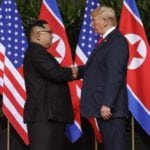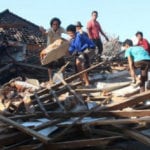 Mysteries
Mysteries  Mysteries
Mysteries  History
History 10 Surprising Stories About the Texas Rangers
 Humans
Humans 10 Philosophers Who Were Driven Mad by Their Own Theories
 Miscellaneous
Miscellaneous 10 Video-Game-Worthy Weapons and Armors from History
 Weird Stuff
Weird Stuff 10 Psychics Who Accurately Predicted Wartime Events
 The Arts
The Arts 10 Pieces of Art Inspired by a Broken Heart
 Health
Health 10 Science Fiction-Sounding New Medical Treatments
 History
History 10 Surprising Facts About the Father of Submarine Warfare
 Space
Space Ten Astonishing New Insights into Alien Worlds
 Weird Stuff
Weird Stuff 10 Bizarre Summer Solstice Rituals Still Practiced Today
 Mysteries
Mysteries Top 10 Haunting Facts About the Ghost Ship MV Alta
 History
History 10 Surprising Stories About the Texas Rangers
 Humans
Humans 10 Philosophers Who Were Driven Mad by Their Own Theories
Who's Behind Listverse?

Jamie Frater
Head Editor
Jamie founded Listverse due to an insatiable desire to share fascinating, obscure, and bizarre facts. He has been a guest speaker on numerous national radio and television stations and is a five time published author.
More About Us Miscellaneous
Miscellaneous 10 Video-Game-Worthy Weapons and Armors from History
 Weird Stuff
Weird Stuff 10 Psychics Who Accurately Predicted Wartime Events
 The Arts
The Arts 10 Pieces of Art Inspired by a Broken Heart
 Health
Health 10 Science Fiction-Sounding New Medical Treatments
 History
History 10 Surprising Facts About the Father of Submarine Warfare
 Space
Space Ten Astonishing New Insights into Alien Worlds
 Weird Stuff
Weird Stuff 10 Bizarre Summer Solstice Rituals Still Practiced Today
10 Mind-Blowing Things That Happened This Week (11/30/18)
Keeping up with the news is hard. So hard, in fact, that we’ve decided to save you the hassle by rounding up the most significant, unusual, or just plain old mind-blowing stories each week.
This week was a veritable newsgasm, with major stories pouring in from all over the globe in surging rivers of newsiness. There were major political upsets in Taiwan and Switzerland, ethically dubious science headlines from China, and the potential discovery of the US’s worst-ever serial killer. To top it all off, we also saw Ukraine and Russia potentially trigger World War III. Ready to have your mind comprehensively blown?
10 We May Have Uncovered the US’s Worst-Ever Serial Killer
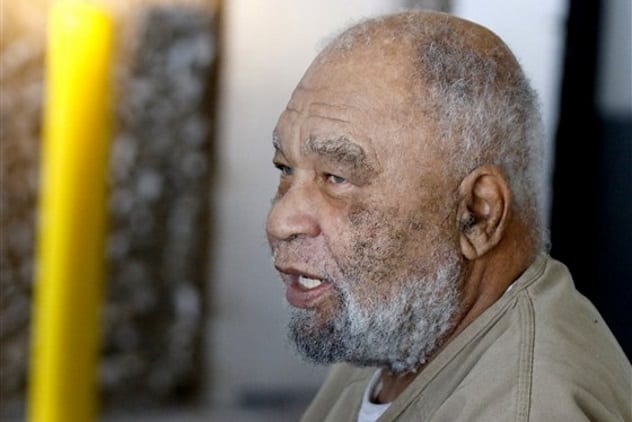
At time of writing, the most prolific serial killer in US history by confirmed murders is Gary Ridgway, also known as the Green River Killer. Ridgway is known to have sexually assaulted and murdered at least 49 women, a horrific total by anyone’s standards.
However, he may soon lose his awful record. This week, the FBI announced that 78-year-old Samuel Little—currently serving life for the murder of three women—had recently started confessing to many, many more murders. How many? Right now, the FBI has managed to confirm 34, which makes Little a worse murderer than both John Wayne Gacy and Ted Bundy. But this is just the tip of the iceberg. The FBI believes it will eventually confirm a grand total of 90.[1]
This would make Little the most prolific serial killer the US has ever known. It would also reveal a shocking level of neglect by law enforcement. Little murdered prostitutes, drug addicts, and others on the fringes of society. Because of this, his crime spree went undetected for 35 years.
9 A Pro-China Party Shockingly Dominated Taiwan’s Elections
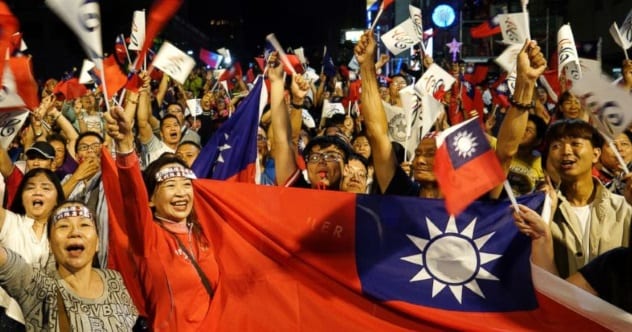
Over recent years, China has made no secret that it prefers Taiwan’s KMT Party to the currently ruling DPP. Given all you’ve heard about Beijing muscling Taipei off the world stage, you’d probably assume that meant Taiwanese themselves were DPP all the way. Well, you’d be wrong. On Saturday, Taiwanese went to the polls for local elections. They handed the DPP a crushing defeat and boosted KMT immeasurably.[2]
The scale of the rout was shocking. The DPP lost key cities they’d held for over 20 years, including their stronghold of Kaohsiung. DPP losing Kaohsiung is like the Republican Party losing Mississippi; it just ain’t supposed to happen. Things now look so bleak for the party that President Tsai Ing-wen resigned as chairwoman. (She remains on as president.)
While the outcome was undoubtedly celebrated in Beijing, most analysts stressed that the results reflected more localized issues, such as the stagnant economy and some ill-judged pension reforms. Still, there’s some evidence that China engaged in Russia-style election meddling.
In related news, Saturday also saw Taiwan unexpectedly vote no to same-sex marriage in a referendum. The DPP has said that it plans to legalize it regardless.
8 The Honduran President’s Brother Was Busted For Drug Trafficking
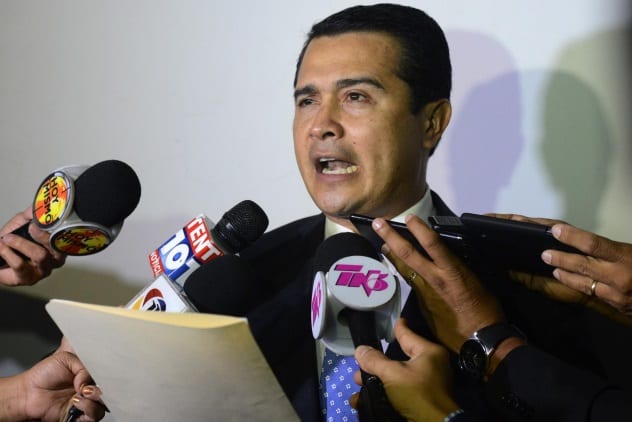
Broadly, the US tends to support Honduras, even going so far as to effectively sanction the violent 2009 coup d’etat on the advice of one Hillary Clinton. (Remember her?) But recently, US authorities have been taking a dim view of Honduran politicians getting involved in the drug trade. Over the last year or so, the US has charged three congressmen for their involvement in trafficking.
Last Friday, authorities went after the biggest fish so far. Juan Antonio Hernandez, brother of current president Juan Orlando Hernandez, was arrested in Miami. He has been charged with being the lynchpin of a cocaine-smuggling ring that operated throughout the Americas for 12 years.[3]
Prosecutors say Antonio bribed officials, extorted money from drug traffickers, and provided arms and protection to ships filled with cocaine making their way into the American market. If found guilty, he faces life in a US prison. There is no word yet from the Honduran president’s office on how this may effect bilateral relations.
7 Switzerland Voted Heavily Against Regaining Sovereignty
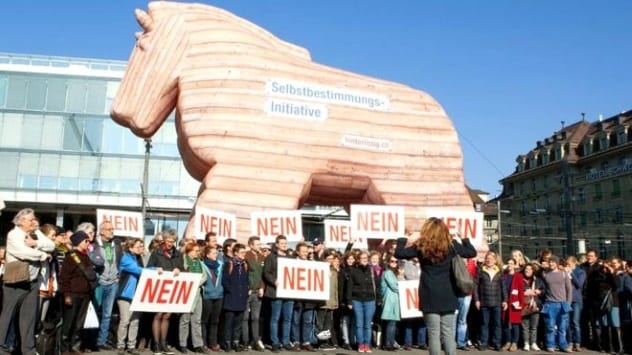
Over the past few years, the populist right-wing Swiss People’s Party (SVP) has been on something of a roll. In 2014, they managed to stage and win a referendum on limiting all immigration to Switzerland, triggering an ongoing political crisis with the EU. (Switzerland is not in the EU but has a complex network of bilateral treaties with the bloc, including on free movement. Were the Swiss to terminate free movement, the other treaties would collapse. Negotiations following the referendum are currently in their final stage.)
However, SVP may have reached their high water mark. On the weekend, the Swiss people went to the polls to vote on another SVP referendum, which would have placed Swiss law above international law. Around 67 percent of voters voted it down, a surprising and crushing defeat for SVP.[4]
The SVP had framed the debate as being about regaining Swiss sovereignty. The other parties and business groups successfully maneuvered it into one on whether voters wanted to plunge the nation into Brexit-style chaos. Had the referendum passed, thousands of treaties would have had to be renegotiated.
6 The UK Government Published Warnings Against Its Own Brexit Deal
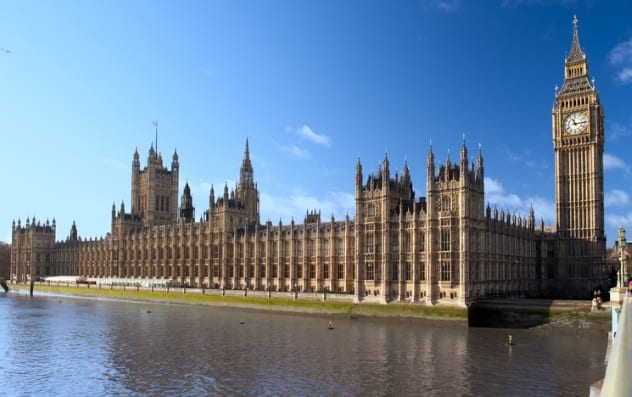
Since we mentioned Brexit in the last slide, we might as well get this story out of the way here. The last few weeks have seen Theresa May desperately trying to drum up support for her government’s preferred Brexit deal, only to run into a wall of opposition from both left and right. To that wall has now been added . . . err, Theresa May’s own government.
On Wednesday, the Treasury published its official forecast into various Brexit scenarios, including the government’s proposed version. It found that every single outcome left Britain significantly poorer and, in some cases, in dire economic straits.[5]
The analysis included estimates for if immigration was both halted or allowed to continue and made some heroic assumptions about the UK striking easy trade deals with the US and China. It found that under May’s plan, Britain’s nominal GDP would be up to 2.1 percent smaller by 2035. With no deal, that would rise to 10.7 percent.
The analysis is yet another blow for May’s government, which is currently clinging onto life purely because the left are terrified that deposing her would lead to a frothing Brexiteer as PM, while the right are terrified it would lead to Prime Minister Jeremy Corbyn.
5 The US Senate Moved To End American Involvement In Yemen
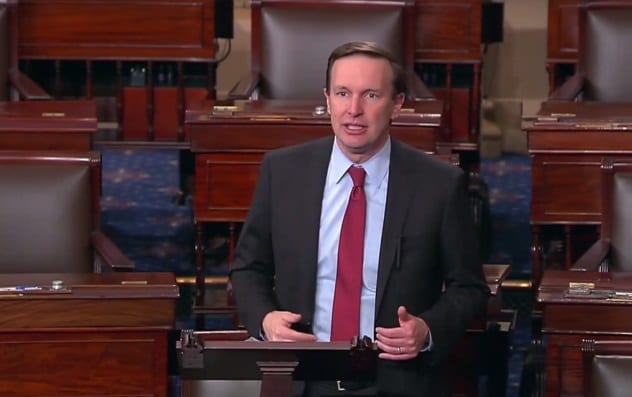
The UN has called Yemen the “world’s worst humanitarian crisis.” Since 2015, a Saudi-led coalition has been bombing the Middle Eastern nation, nominally to defeat Iran-backed Houthi rebels but in practice seemingly just for the sheer heck of blowing up civilians.
Currently, the US is providing assistance to the coalition, although that might all be about to change. On Wednesday, a bipartisan bill passed the Senate 67–37 calling for an end to US involvement in the war. The vote was seen as a pointed rebuke to President Trump from Republicans angry over his reaction to the recent murder of Washington Post journalist Jamal Khashoggi.[6]Saudi Arabia has long been a key US ally in the Gulf. However, the nations have had a strained relationship. Under Crown Prince Mohammed bin Salman (known as MBS), the strain has only gotten worse. While Trump has tried to keep the Saudis onside, his refusal to acknowledge MBS’s role in Khashoggi’s death has triggered uproar in both Democratic and Republican circles. What this vote will mean for US-Saudi relations remains to be seen.
4 A Chinese Scientist Triggered A Massive Ethical Scandal Over Gene-Edited Babies
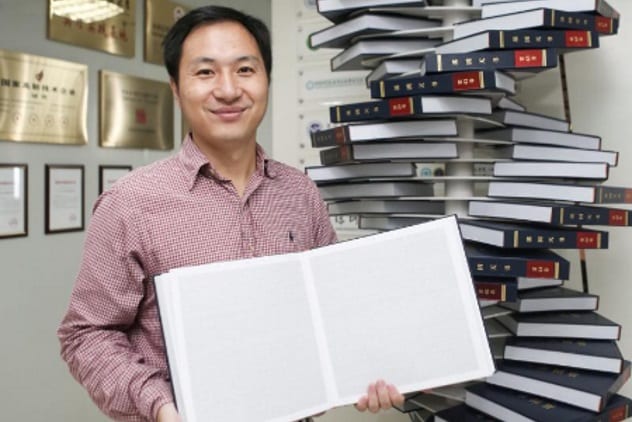
Right now, you might be living in a brave new world of gene-edited babies. We say “might” because no one’s really sure. This week, Chinese scientist He Jiankui claimed to have successfully edited the genes of two baby girls to give them immunity to HIV. The problem is that no one knows who these kids are, no one can find any evidence of scientific oversight, and no one knows if he actually did it.[7]
Back in 2012, scientists brought CRISPR-Cas9 into the world—a tool that allows the easy editing of human genes. But because of the massive safety and ethical issues surrounding it, actually doing so has been banned in almost every country, including China. If He really did what he said he did, then He has opened a Pandora’s box.
Of course, no one knows if he has or hasn’t. With the scientific community in uproar, He presented his findings in Hong Kong on Wednesday. While many experts in attendance later told reporters they believed He had really gone ahead with his human experiment, there wasn’t enough detail to confirm it.
3 Deutsche Bank Was Raided In A Huge Money Laundering Scandal
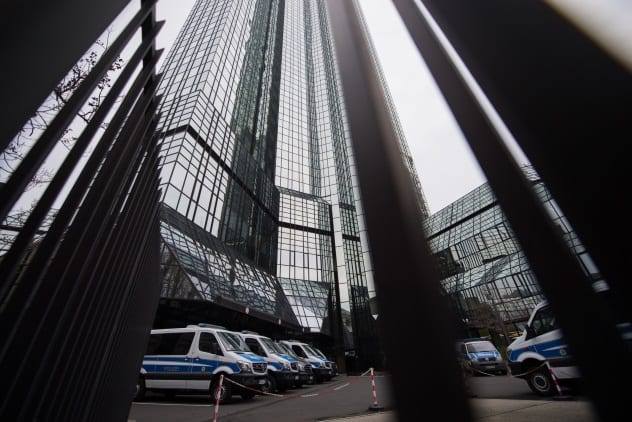
On Thursday morning, just before trading hours started, a group of German police cars screamed up outside Deutsche Bank’s Frankfurt headquarters. 170 officers descended on the building, confiscating piles of evidence and arresting two senior bankers. Once again, DB had found itself at the center of a massive money laundering scandal. The latest arrests cap off a dreadful few years for the financial institution.[8]
The German lender was a major focus of the Panama Papers, which, in 2016, exposed money laundering on a gigantic scale. It has since been sucked into yet another laundering scandal alongside Denmark’s Danske Bank. And now this. This latest raid relates to yet more documents from the Panama Papers. It also triggered a plunge in Deutsche Bank’s share price that could leave it paralyzed for months.
What’s incredible is that the bank’s chairman, Paul Achleitner, has ridden out all of these scandals without anyone ever thinking to remove him. Having your organization busted for money laundering once on your watch is bad enough, but three times? Hopefully, Achleitner will be pushed out after this latest debacle, and someone less flagrantly unsuitable will be found for his job.
2 The Philippines Handed Out The First Sentences For Drug War Killings
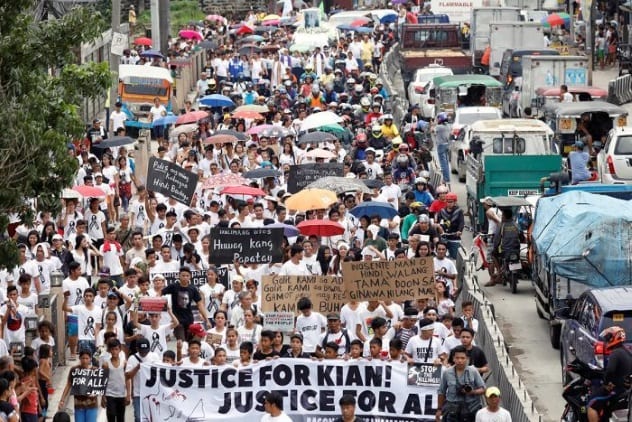
In July 2016, President Rodrigo Duterte of the Philippines launched his brutal “war on drugs,” a euphemism for a wave of extrajudicial killings by police and security forces. According to the Philippine government’s own figures, over 4,500 people have since died, while human rights groups claim the total is closer to 12,000. In all that time, those who executed suspected criminals had received no punishment.
Until now. This week, a Filipino court jailed three police officers for the extrajudicial murder of 17-year old schoolboy Kian Lloyd delos Santos in 2017. It is hoped that the punishments may usher in a new era of accountability in the country.[9]
The death of delos Santos rocked the country with its randomness and brutality. Gunned down in a darkened alley, he was posthumously framed by cops as a violent criminal, before footage emerged showing that his death was likely cold-blooded murder. The outcry even led to a brief respite in the drug war, but sadly, it has since been restarted. These particular cops may be headed to jail, but until Duterte changes his tone, more kids like delos Santos will likely die.
1 Ukraine And Russia Tilted Toward War
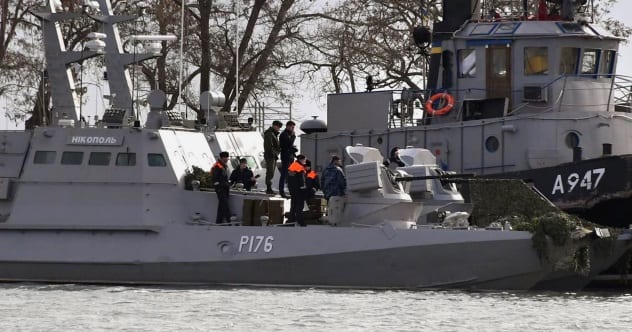
Here it is, then. The biggest story of the week. A crisis in a remote sea you’ve likely never heard of that could be about to trigger a full-blown conflict in Europe.
On Sunday, the Russian coast guard opened fire on three Ukrainian navy vessels approaching the Sea of Azov, wounding three Ukrainians and capturing 16 personnel. Under a 2003 treaty, the waters of Azov are meant to be jointly owned by Kiev and Moscow, but since annexing Crimea, Russia has been trying to freeze Ukraine out. (The sea is vital to the Ukrainian economy.)
Russia insists it’s trying to do no such thing and that the Ukrainian vessels provocatively entered Russian waters. Ukraine says they were seized in international territory.
Whoever you believe, the clash is a dangerous escalation of an already dangerous situation.[10] Much of Ukraine has now been put under martial law, and President Poroshenko has directly appealed to NATO to help in the event of a Russian invasion.
The fear is that a new localized conflict like the one between Georgia and Russia in 2008 could this time grow into something much bigger, and much deadlier. While a full-blown war is relatively unlikely, the potential is still there for things to spin out of control. This latest escalation made preventing that from happening a lot harder.
Missed the news lately? Catch up on more mind-blowing events from November 23, 2018, and November 16, 2018.
